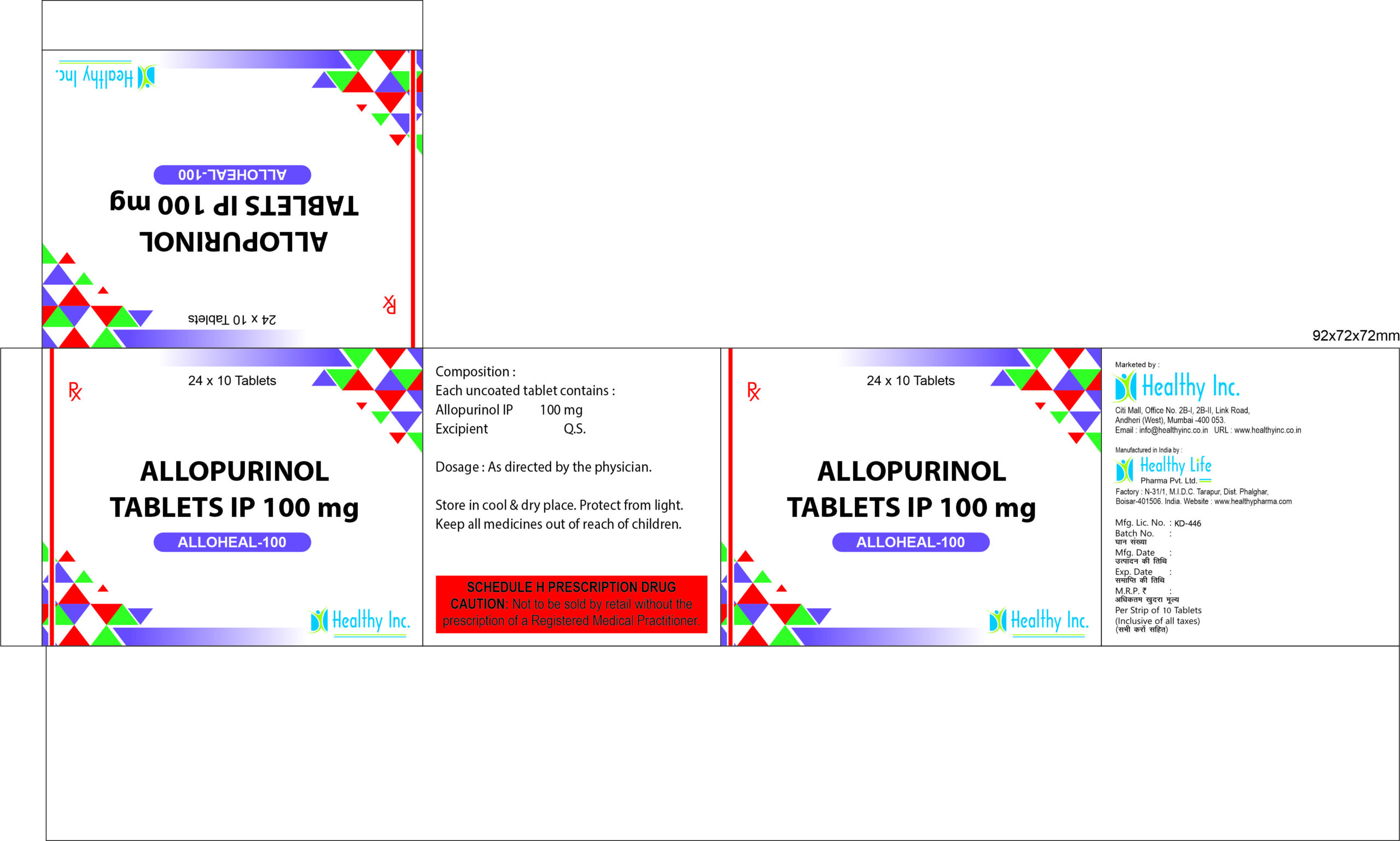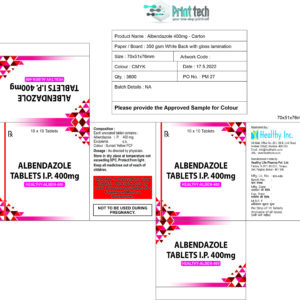Description
Allopurinol Tablets (100mg / 300mg)
Manufactured by Healthy Life Pharma Pvt. Ltd. | Exported by Healthy Inc
1. Product Introduction Healthy Life Pharma Pvt. Ltd. is a specialized manufacturer of Allopurinol Tablets in India. This Xanthine Oxidase Inhibitor is the global gold standard for the long-term management of Gout and Hyperuricemia. We produce high-purity tablets that ensure consistent uric acid reduction. Our facility adheres to strict WHO-GMP standards. Healthy Inc manages our global exports and chronic disease tenders.
2. Product Specifications | Parameter | Specification | | :— | :— | | Product Name | Allopurinol Tablets | | Generic Name | Allopurinol USP / BP / IP | | Strength | 100mg / 300mg | | Dosage Form | Uncoated Tablet (Scored) | | Standard | USP / BP / IP Compliant | | Therapeutic Class | Anti-gout Agent (Xanthine Oxidase Inhibitor) | | Shelf Life | 36 Months | | Packaging | 10×10 Blister / 1000s Bulk Jar |
3. Manufacturing Allopurinol Tablets We divide our operations to ensure specialized focus.
The Manufacturer: Healthy Life Pharma Pvt. Ltd. First, Healthy Life Pharma handles manufacturing. We operate a WHO-GMP certified plant in Mumbai. Allopurinol therapy often requires “titration” (starting with a low dose and increasing slowly). To facilitate this, we manufacture our tablets with a Functional Score Line. This allows the 300mg tablet to be split cleanly into two equal 150mg doses without crumbling, ensuring the patient gets the exact required dosage during titration.
The Exporter: Healthy Inc Second, Healthy Inc manages international trade. This division handles logistics for Allopurinol Tablets. We supply geriatric care networks and pharmacy chains globally. We ensure consistent supply chains, as Gout patients require this medication daily for life to prevent painful flare-ups.
4. Quality Assurance We test every batch rigorously.
Dissolution: We test how the tablet releases the drug. Reliable dissolution is critical to maintaining stable uric acid levels in the blood.
Impurity Profiling: We strictly monitor for degradation products to ensure long-term safety.
Hardness: We ensure the tablet is hard enough to ship, but soft enough to be split easily by elderly patients using the score line.
5. Why Use Allopurinol Tablets? This drug treats the root cause of gout, not just the pain.
Mechanism: It inhibits the enzyme Xanthine Oxidase. This enzyme is responsible for converting purines into uric acid.
Effect: By blocking this enzyme, it lowers the production of uric acid in the body, preventing crystals from forming in the joints and kidneys.
Key Indications:
Gout: Chronic management of gouty arthritis (to prevent attacks).
Hyperuricemia: Treatment of high uric acid levels caused by cancer therapy (tumor lysis syndrome).
Kidney Stones: Prevention of recurrent calcium oxalate stones in patients with high uric acid excretion.
6. Export and Regulatory Support We provide complete documentation for registration.
Dossier: We offer CTD and ACTD formats.
Certificates: We supply the Free Sale Certificate (FSC) and COPP.
Logistics: We ship via FOB Mumbai or CIF.
7. Frequently Asked Questions
Q: Who manufactures Allopurinol Tablets? A: Healthy Life Pharma Pvt. Ltd. manufactures them in India.
Q: Is this for acute attacks? A: No, Allopurinol is for prevention. It should not be started during an acute attack, as it can temporarily make it worse.
Q: Do you offer the 300mg strength? A: Yes, we manufacture both 100mg and 300mg strengths.
CLINICAL PHARMACOLOGY & SAFETY INFORMATION (For Registered Medical Practitioners & Patient Reference)
8. Dosage and Administration
Standard Dosage: Usually starts at 100mg daily, increased gradually to 300mg or more based on serum uric acid levels.
Fluid Intake: Patients must drink sufficient fluids (2 Liters/day) to support uric acid excretion.
Administration: Take after a meal to reduce gastric irritation.
9. Side Effects and Precautions
Severe Skin Reactions (SJS/TEN): Rare but serious. Risk is higher in patients with the HLA-B*5801 allele (common in Asian populations). Discontinue immediately at the first sign of a rash.
Gout Flares: Initiation of therapy may trigger a gout attack. Prophylaxis with Colchicine or NSAIDs is recommended for the first few months.
Common Side Effects: Rash, nausea, and changes in liver function tests.
10. Storage Instructions
Store below 25°C in a dry place.
Protect from light and moisture.
Keep out of reach of children.








